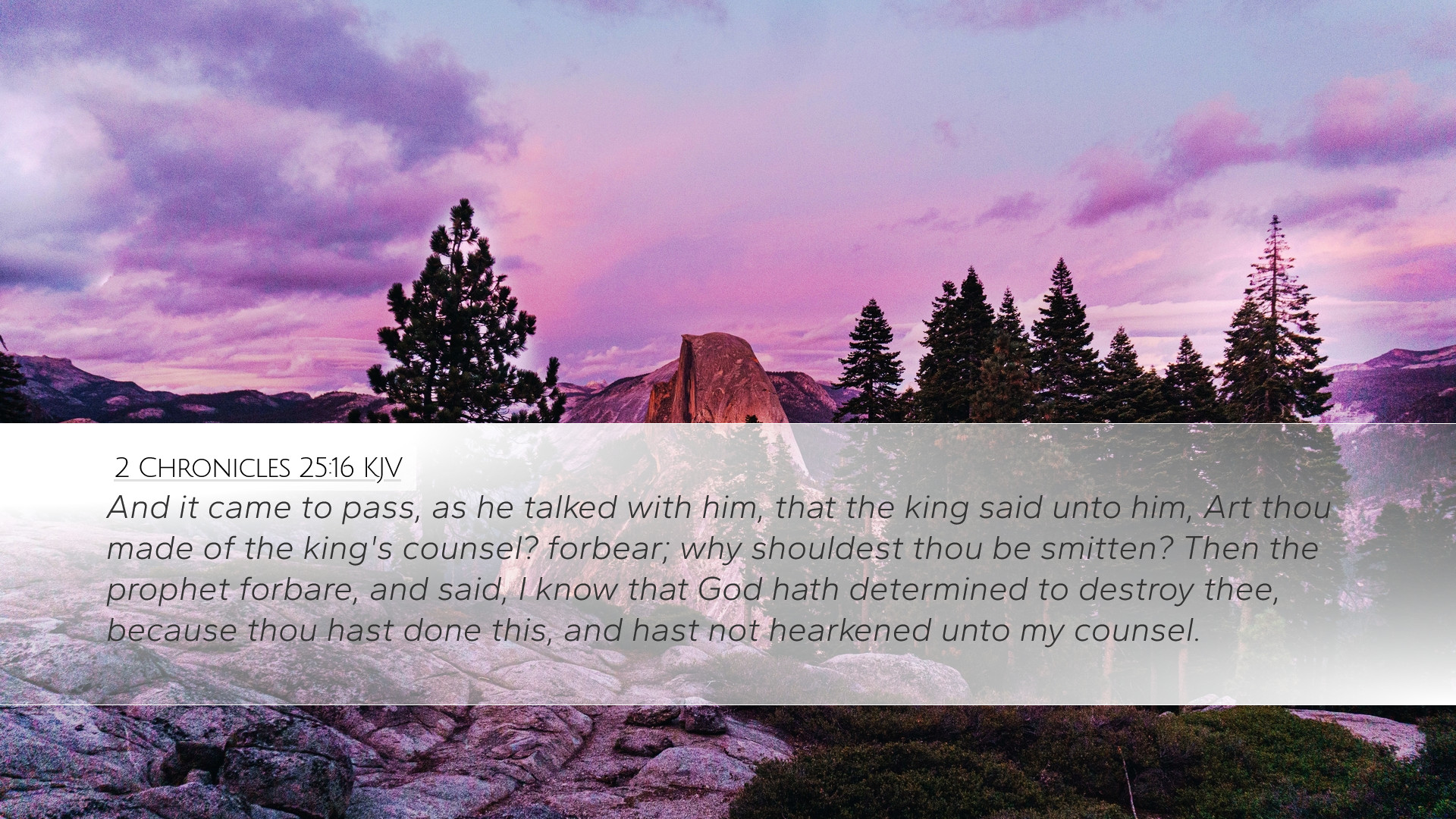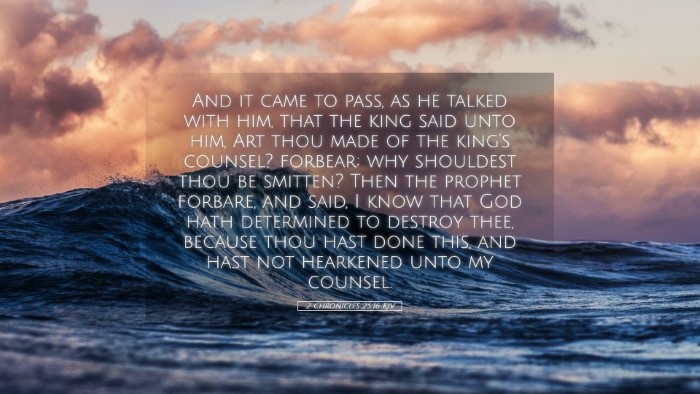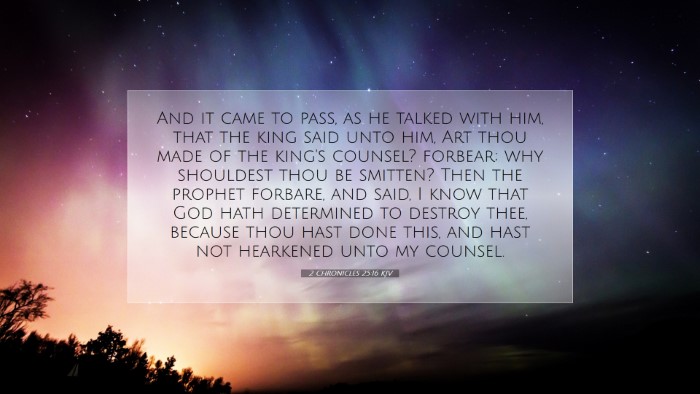Commentary on 2 Chronicles 25:16
2 Chronicles 25:16 states, "But as he was speaking, the king said to him, 'Have we made you the counselor to the king? Stop! Why should you be struck down?' So the prophet stopped and said, 'I know that God has determined to destroy you because you have done this and have not listened to my counsel.'
Contextual Overview
This verse occurs within the narrative of King Amaziah of Judah, who, after securing victory over Edom, turned away from the Lord by introducing the worship of idols. The prophet's confrontation illustrates a significant turning point, emphasizing the tension between divine authority and human leadership.
Exegesis of Key Components
- The Role of the Prophet: The prophet represents the voice of God, serving as a mediator who brings divine counsel. Here, his instruction indicates God’s response to Amaziah's unfaithfulness.
- The King's Response: Amaziah's reaction to the prophet’s rebuke—offering hostility instead of humility—highlights a common theme in biblical narratives: the danger of pride and disobedience to God’s warnings.
- The Judgment Declared: The declaration regarding Amaziah's impending destruction underscores a theological principle: rebellion against God's commands leads to judgment.
Theological Implications
The passage raises essential questions about authority, submission, and the consequences of forsaking divine instruction:
- Authority of the Divine: It showcases the authority of God over human affairs, reminding leaders that ignoring divine counsel can lead to dire consequences.
- Human Accountability: Amaziah's refusal to heed the warning highlights the biblical principle that individuals are accountable for their choices, particularly those in positions of power.
Insights from Mathew Henry
Matthew Henry notes that "Amaziah's pride was his ruin. He was more afraid of a few words from a prophet than of the wrath of the Almighty." Henry underscores the folly of leading without acknowledging divine input and cautions against the pride that leads to a refusal to listen to wise counsel.
Insights from Albert Barnes
Albert Barnes emphasizes the significance of obedience to divine direction: "True wisdom lies not in the might of man but in the willingness to submit to God's will." His commentary reflects the idea that true leadership is characterized by humility and acknowledgment of God’s sovereignty.
Insights from Adam Clarke
Adam Clarke elaborates on the prophecy's fulfillment and its implications for Amaziah's reign, indicating that "a refusal to acknowledge God's direction often results in a downward spiral of consequences for leaders and their nations." Clarke stresses the importance of heeding prophetic words as a way to avert disaster.
Practical Applications for Today
The narrative of 2 Chronicles 25:16 serves as a potent warning for today's leaders in faith communities:
- Humility in Leadership: Leaders must remain humble and receptive to divine guidance, recognizing their limitations.
- The Importance of Counsel: Seeking and heeding wise counsel is crucial for leadership success, especially in spiritual matters.
- Consequences of Disobedience: Ignoring God's commands can lead not only to personal ruin but also ripple effects impacting the broader community.
Conclusion
In conclusion, 2 Chronicles 25:16 highlights the necessity of aligning our decisions with God's will. The character of Amaziah serves as a cautionary tale for leaders who disregard spiritual counsel. As we reflect on this passage, may we gain wisdom in leadership, remaining sensitive to the voice and guidance of God through His servants.


